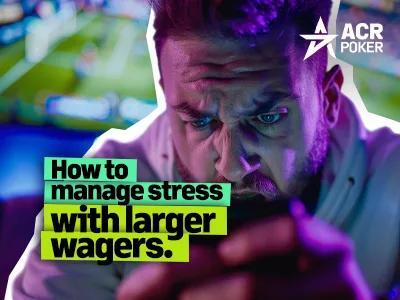The allure of high-stakes betting often hinges on a single moment—a last-second shot, a final play, a turn of a card. For those engaged in Over/Under bets, this pressure is magnified, as the entire outcome rests on a cumulative total rather than a simple win or loss. In these environments, the greatest opponent is not the sportsbook or another player, but one’s own emotional response. Achieving success requires more than analytical skill; it demands unwavering discipline. The ability to maintain Emotional Control High Risk scenarios is the defining characteristic of a consistently profitable bettor.
Unlike picking a winner, totals betting involves a nuanced understanding of game flow, pace, and scoring potential. This complexity can invite emotional decision-making, where gut feelings and recent biases override statistical evidence. This guide explores the psychological challenges inherent in Over/Under bets and provides structured strategies to cultivate the mental fortitude needed to thrive under pressure.
The Psychology of Totals Betting: Common Emotional Pitfalls
Before one can build a fortress of emotional discipline, it is essential to identify the cracks in the foundation. High-stakes Over/Under bets create a fertile ground for cognitive biases that can derail even the most well-researched strategies. Recognizing these traps is the first step toward avoiding them.
Recency Bias: The Danger of Short-Term Memory
Recency bias is the tendency to place excessive importance on recent events. A bettor might see a team score an unusually high number of points in their last game and immediately bet the “Over” in their next matchup, ignoring long-term statistical averages. For instance, a basketball team that just shot 60% from the field is statistically likely to regress to its mean, not repeat that performance. Emotional bettors chase trends, while disciplined bettors understand variance and regression.
Confirmation Bias: Seeking Evidence That Fits a Narrative
This psychological trap involves favoring information that confirms pre-existing beliefs while ignoring contradictory evidence. If a bettor feels a game will be low-scoring, they might focus solely on defensive statistics and downplay potent offenses or favorable weather conditions. Effective betting on Over/Under bets requires an objective evaluation of all relevant data, not just the pieces that support an initial hunch. A successful approach involves trying to disprove one’s own thesis to test its strength.
Chasing Losses: The Downward Spiral
One of the most destructive emotional responses is chasing losses. After an unfortunate loss on an Over/Under wager, the impulse to immediately place another, often larger, bet to recoup the funds is strong. This decision is driven by panic and frustration, not logic. This is a classic example where a lack of Emotional Control High Risk situations leads to significant bankroll damage. A disciplined bettor accepts the loss as part of the process and sticks to their pre-defined staking plan and strategy.
Building a Framework for Emotional Discipline
Mastering emotional control is not an innate talent but a developed skill. It is built upon a foundation of structure, process, and psychological resilience. The goal is to transform betting from a series of emotional gambles into a set of calculated, data-driven decisions.
Establish a Non-Negotiable Process
Emotions thrive in chaos but wither under structure. Creating a consistent, repeatable process for analyzing every bet is critical. This should be a checklist-style approach that removes subjective feelings from the equation.
- Data Collection: Define specific statistical categories to analyze for every game (e.g., points per possession, pace of play, defensive efficiency).
- Bankroll Management: Implement a strict staking plan, such as betting a fixed percentage (1-3%) of your bankroll on each wager. This prevents a single loss from causing emotional distress.
- Line Shopping: Compare odds across multiple sportsbooks to ensure you are getting the best possible value for your Over/Under bets.
By adhering to a rigid process, the decision to place a bet becomes the logical conclusion of an analytical sequence, rather than an emotional impulse.
Adopt a Professional Mindset
Viewing betting as a long-term investment rather than a source of immediate gratification is crucial for emotional stability. Professionals in other high-stakes arenas, such as the focused players found on competitive platforms like ACR Poker, understand that individual outcomes are less important than long-term profitability. They don’t get overly excited by a win or devastated by a loss. This detached, business-like approach is essential for navigating the variance inherent in betting. Every wager is just one of a thousand data points in a larger strategy.
Practical Example: Emotional vs. Disciplined Approach
Consider an NFL game where the total is set at 48.5 points. Two high-scoring teams are facing off, and the public is heavily betting the “Over.”
| Decision Factor | Emotional Bettor’s Reaction | Disciplined Bettor’s Analysis |
|---|---|---|
| Public Perception | “Everyone is on the Over, it must be a lock. I don’t want to miss out.” | “Public bias has likely inflated this line. I will look for value in the Under if my data supports it.” |
| Recent Performance | “Both teams scored 30+ points last week. This game is going to be a shootout.” | “Analyzes pace of play, red zone efficiency, and defensive stats. Notes one team’s high score was due to defensive touchdowns, which are not sustainable.” |
| Key Injury News | “The star receiver is out, but they have other good players. It won’t matter.” | “Quantifies the impact of the receiver’s absence on the team’s offensive output and adjusts projection accordingly.” |
Conclusion: The Ultimate Competitive Edge
In the competitive world of sports betting, analytical tools and access to information have become widely available. The true differentiator is no longer who has the best stats, but who can best control their psychological responses. Mastering Emotional Control High Risk betting on Over/Under bets is a continuous journey of self-awareness and discipline. By recognizing emotional triggers, implementing a rigid analytical process, and adopting a professional, long-term mindset, bettors can insulate their decision-making from the destructive influence of bias and impulse. Ultimately, the coldest mind, not the hottest hand, wins in the long run.

